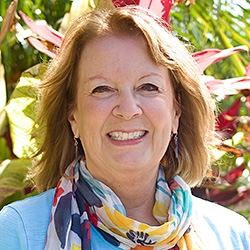
NVC Resources on Connection
-
How is empathy in the workplace a professional skill? If you are ready to learn why and how empathy is the critical factor to more productivity, profitability and collaboration in the workplace, this recording is for you!
-
Please join us as we take a deeper look into this mysterious word, “community.” In this Trainer Dialogue recording, we explore the living process of creating, uniting and nurturing NVC communities so that they transcend yet sustain and empower their members.
-
Please join us as we take a look at what disrupts our joy during the holidays… and discuss the delicious possibilities that abound when we declare our intention to "Greet the Holidays with an Open, Joyful Heart."
-
Trainer Tip: Clarifying our requests can make the difference between frustration and satisfaction, Mary shows you how.
-
Please join us as we remember the work and life of Inbal Kashtan. She offered this parenting Q&A session in NVC Academy's 2013 Parenting Conference.
-
Listen to Roxy Manning explore the barriers to speaking authentically as powerful voices for change, and practice these needed conversations about the ongoing violence in the streets of America.
-
In this inspiring video, Robert Gonzales, veteran CNVC Certified Trainer, talks about his personal search to integrate spirituality into his daily life, and how Nonviolent Communication provided the missing link for this integration and has become the focus of his work.
-
In this short but profound audio, Susan Skye unpacks the various ways one may view (and experience) the need for respect. By deepening your understanding of respect, you will enjoy greater choice and clarity in your own experience of respect and in making a request of others.
-
Often when someone else does something we don't like, it's easy to blame the other person. After all, we have all been trained to focus on fault when needs are not met. What can we do to shift that pattern?
-
Ask the Trainer: "I recently attended an NVC workshop where the focus was entirely upon empathy, and expressing honestly was not covered. Aren't empathy and honesty both vital NVC components?"











